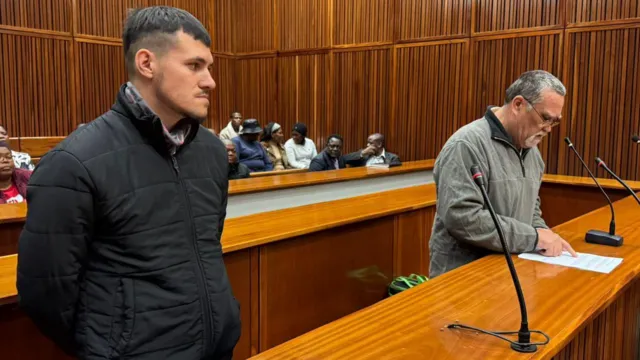A horrific murder case involving three men accused of killing two black women and feeding their bodies to pigs has sparked national outrage and renewed racial tensions in South Africa.
Adrian de Wet, 20, a white farm worker and one of the accused, turned state witness as the trial began this week at the Limpopo High Court. He claims he was forced under duress to dispose of the bodies of Maria Makgato, 45, and Lucia Ndlovu, 34, by throwing them into a pig enclosure.
The women were allegedly searching for soon-to-expire dairy products on the farm near Polokwane in northern Limpopo province last year when they were fatally shot. De Wet alleges that farm owner Zachariah Johannes Olivier, 60, opened fire, killing the two women. If the court accepts De Wet’s testimony, all charges against him will be dropped.
The bodies were reportedly fed to pigs in an attempt to eliminate evidence. The accused, including William Musora, 50, a Zimbabwean farm worker, face multiple charges including murder, attempted murder after allegedly shooting at Ms. Ndlovu’s husband—possession of an unlicensed firearm, and obstructing justice.
Musora also faces an immigration charge under South Africa’s Immigration Act due to his undocumented status.
The case has ignited widespread anger across the country, especially in rural areas where racial and economic disparities remain stark. Despite the end of apartheid over three decades ago, most farmland remains white-owned, while the majority of farm workers are black and often underpaid conditions that continue to fuel deep resentment.
The Limpopo High Court was packed during the hearing, with supporters and grieving relatives of the victims in attendance. Mr. Olivier’s wife was seen weeping in the front row. Members of the Economic Freedom Fighters (EFF), who have previously called for the closure of the farm, were also present in solidarity.
The court has postponed the trial to next week as the nation watches closely, hoping for justice in a case that has once again laid bare South Africa’s unresolved legacy of racial inequality.

